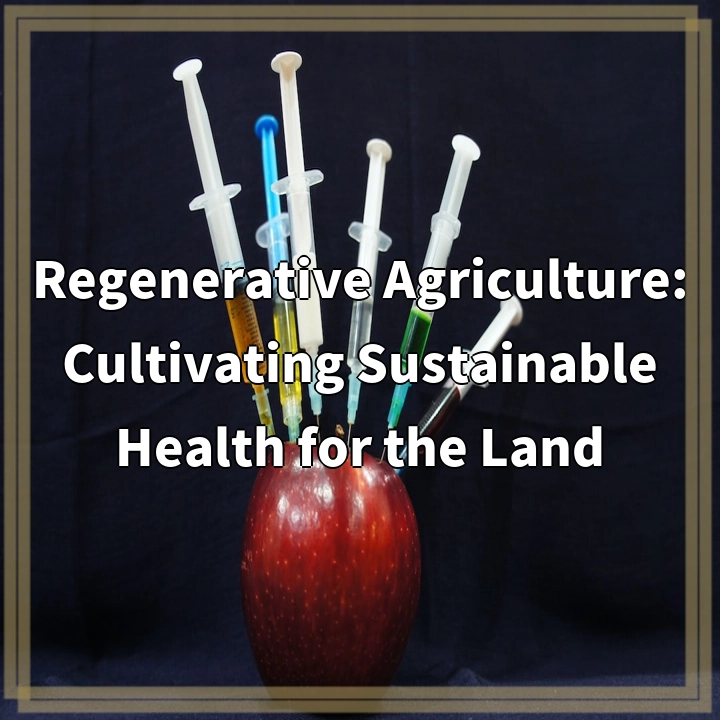Physical Address
304 North Cardinal St.
Dorchester Center, MA 02124
Physical Address
304 North Cardinal St.
Dorchester Center, MA 02124

Regenerative agriculture is an innovative approach to farming that focuses on improving and revitalizing the health of the land. It is a holistic system that aims to restore soil health, enhance biodiversity, sequester carbon, and promote overall ecosystem resilience. Unlike conventional farming practices that often degrade the environment, regenerative agriculture intends to leave the land in a better condition than before.
While regenerative agriculture offers numerous benefits, there are challenges and barriers that must be addressed for its widespread adoption. Some of the real-world problems associated with regenerative agriculture include:
One of the key challenges is promoting awareness and understanding of regenerative agriculture among farmers and agricultural communities. Many conventional farming practices have been deeply ingrained for generations, making it difficult for farmers to consider and implement new approaches.
Transitioning from conventional farming methods to regenerative agriculture requires time, resources, and support. It can take several years for the soil to regain its natural fertility and for farmers to adapt to new practices. Financial assistance and technical expertise are essential to support farmers during this transition period.
Access to resources such as land, seeds, equipment, and training is often a barrier for small-scale farmers who are interested in adopting regenerative agriculture practices. Overcoming these resource constraints requires investment and support from governments, organizations, and the agricultural community.
For regenerative agriculture to be economically viable, there needs to be sufficient market demand and a pricing structure that recognizes the added value of sustainable farming practices. Connecting regenerative farmers with consumers who prioritize sustainable and environmentally friendly food choices is essential for the success of this approach.
Regenerative agriculture needs a supportive policy and regulatory framework that encourages and incentivizes sustainable farming practices. This can include financial incentives, subsidies, and regulations that promote soil conservation, carbon sequestration, and biodiversity protection.
Addressing the real-world problems associated with regenerative agriculture requires a collaborative effort from various stakeholders. By implementing the following solutions, we can overcome the barriers and promote the widespread adoption of sustainable farming practices:
Increasing awareness and understanding of regenerative agriculture through education and outreach programs is essential. Providing resources, workshops, and training opportunities can help farmers learn about the benefits and techniques of regenerative practices.
Offering financial assistance and technical guidance during the transition period can encourage farmers to adopt regenerative practices. Providing grants, loans, and mentorship programs can ease the financial burden and help farmers navigate the challenges of implementing new techniques.
Encouraging collaboration among farmers, researchers, and agricultural organizations can facilitate knowledge sharing and best practices in regenerative agriculture. Creating platforms for farmers to exchange ideas, experiences, and success stories can accelerate the adoption of sustainable farming methods.
Raising awareness among consumers about the importance of regenerative agriculture and the benefits of sustainable food choices is crucial. Developing markets for regenerative products, promoting direct sales between farmers and consumers, and establishing food certification programs can create a supportive market environment for regenerative farmers.
Advocating for policy reform that supports regenerative agriculture and incentivizes sustainable practices is necessary. Governments and regulatory bodies can introduce financial incentives, tax breaks, and subsidies for regenerative farmers. Additionally, enacting regulations that protect soil health, biodiversity, and water resources can further promote sustainable farming practices.
By implementing these solutions, we can overcome the real-world problems associated with regenerative agriculture and create a more sustainable and resilient agricultural system that benefits the environment, farmers, and communities.
If you’re wondering where the article came from!
#